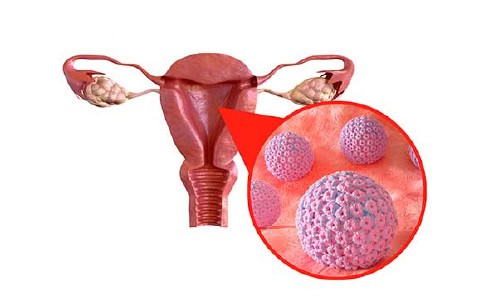Genital warts, caused by certain strains of the human papillomavirus (HPV), are a common sexually transmitted infection. These growths can appear on the genitals and surrounding areas, potentially leading to complications like cervical cancer, penile cancer, and recurrent respiratory papillomatosis. Treatment options include topical medications, surgical removal, and HPV vaccines.
If you're considering treatment for genital warts, reach out to us or book a direct appointment with our gynaecologist.At the CK Birla Hospital, we are dedicated to ensuring that your genital warts treatment is as safe, comfortable, and effective as possible. We're here to guide you every step of the way toward a successful recovery.

Certain types of HPV, specifically those responsible for genital warts, are transmitted through skin-to-skin contact during sexual activity. However, it’s important to note that the strain causing genital warts is distinct from the types that cause warts on other body parts.
Genital warts spread through various means, such as:
Interestingly, you can carry the HPV strain associated with genital warts without developing visible warts yourself. Consequently, transmission to partners can occur even if warts are not present, making it challenging to determine the origin of the infection.
Genital warts, resulting from specific strains of human papillomavirus (HPV), present notable risks if left untreated. Consider these potential consequences associated with untreated genital warts:
Seeking timely medical advice is key if genital warts or any STI (sexually transmitted infections) are suspected. Healthcare professionals offer effective treatment and advise on management strategies. Safe sex practices and HPV vaccination can significantly lower the risk of contracting and spreading genital warts.
Genital warts, caused by certain HPV strains, manifest in two primary types:
Genital warts, caused by HPV, can sometimes disappear without treatment as the immune system fights the infection. However, they might persist, grow, or become more uncomfortable over time. Removing genital warts is important to prevent the spreading of the infection, although treatment doesn’t eliminate the HPV virus.
Here are different methods healthcare providers use to treat genital warts:
During treatment, it’s essential to abstain from sexual contact to prevent spreading the virus. Remember, HPV can still be transmitted even after wart removal, as treatment doesn’t cure the underlying infection.
If you are sexually active, there are important measures you can take to safeguard yourself against acquiring or transmitting HPV, genital warts, and other sexually transmitted infections (STIs), which are:
Vaginal warts, caused by HPV, can be treated and removed, but the underlying virus may persist. Recurrences are possible, and there’s no definitive cure for the virus itself.
Vaginal warts might disappear on their own without treatment, but this can take months or years. However, they often require medical intervention for faster and more reliable resolution.
Yes, but it’s important to use protection and inform your partner, as vaginal warts are contagious and can be transmitted through sexual contact. Seek medical advice for guidance.
Vaginal warts generally do not affect your ability to get pregnant or have children. However, treatment may be necessary during pregnancy to avoid complications during delivery.
To prevent spreading HPV and vaginal warts, use condoms, communicate with partners, limit sexual partners, and consider HPV vaccination. Regular screenings and medical consultations are also essential.
The cost of a genital warts treatment varies as per the specific type of treatment advised by a healthcare provider, such as:
Electrocautery
Freezing (cryotherapy)
Laser treatment
Loop Electrosurgical Excision Procedure (LEEP)
Topical Medicines
Surgery
The cost can also vary widely depending on several factors, including the location, the extent of the treatment, the doctor’s experience, and the hospital’s pricing structure.
To get an explicit estimate for the cost of a genital warts treatment at the CK Birla Hospital, contact the hospital directly. Additionally, you can consult with our board-certified gynaecologist to discuss your specific needs and receive a personalised quote for the treatment.